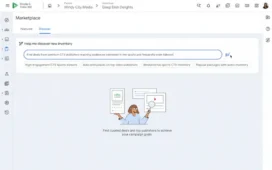Meta’s ad-free subscription offering in Europe is facing another regulatory challenge, with the Consumer Protection Cooperation Network (CPC) today issuing the company with a notice to explain, and potentially revise its marketing of the option, which it says is currently misleading.
To recap, last November, Meta launched its ad-free subscription package in Europe, which enables EU users to pay a monthly fee in order to opt out of both ads and data tracking, which is in line with new EU permission requirements. The idea here is that the option will enable Meta to both comply with the new regulations, while also maintaining its revenue stream.
But immediately, privacy advocates raised concerns with the scheme, suggesting that Meta was forcing people to pay for an offering that should be made available for free. EU regulations require that users have clear control over how their data is used, and the argument is that Meta’s subscription package profits off of this element, which is not within the spirit of the legislation.
After investigation, earlier this month, the EU Commission ruled that Meta’s ad-free subscription plan does indeed fail to comply with the Digital Markets Act (DMA), and has given the company the opportunity to respond before facing potential fines over the program.
And now, the CPC has found, through a separate investigation, that Meta’s ad-free package does not clarify the process enough for users.
As per the finding:
“Consumer protection authorities assessed several elements that could constitute misleading or aggressive practices, in particular whether Meta provided consumers upfront with true, clear and sufficient information. They analysed whether this information allowed consumers to understand the implications of their decision to pay or to accept the processing of their personal data for commercial purposes on their rights as consumers. In addition, CPC authorities are concerned that many consumers might have been exposed to undue pressure to choose rapidly between the two models, fearing that they would instantly lose access to their accounts and their network of contacts.”
The CPC’s view is that Meta’s ad free offering misleads users with its language, placing undue pressure on them to decide whether to take up the subscription plan or not, while Meta’s overall documentation around the package is also confusing.
“[The program] pressures consumers who have always used Facebook/Instagram free of charge until the new business model was introduced, and for whom Facebook/Instagram often constitute a significant part of their social lives and interactions, to make an immediate choice, without giving them a pre-warning, sufficient time, and a real opportunity to assess how that choice might affect their contractual relationship with Meta, by not letting them access their accounts before making their choice.”
Which is an odd argument. At issue here is that the CDC and the EU Commission both seem to be conceding that Facebook and/or Instagram is an essential utility for connection. Yet this is not a government owned entity, it’s a business, and as such, it has the right to conduct its business as it sees fit.
As such, I’m not sure how either will be able to argue, in a legal sense, that Meta cannot charge for its services, especially if these new requirements will impact its bottom line. But both groups seem to be suggesting that Meta needs to continue to offer its services for free, and make it clear that users can avoid paying extra, while also restricting their personal data usage.
It seems, then, that Meta does have a case to put forward in support of its initiative, though Meta is also looking to work with EU authorities, in order to maintain business relationships.
Meta has already offered to half the price of its ad-free package to appease EU regulators.
It’s a bit of a messy case, and an interesting challenge for the new EU regulations, as a ruling in Meta’s favour could establish legal precedent for similar cases moving forward. Which could water down the entire Digital Markets Act (DMA), something EU authorities will be keen to push back against.
In any event, it’s another challenge for Meta in EU, which could lead to changes in what it can offer.
Meta now has until September 1st 2024 to reply to CPC’s notice.















